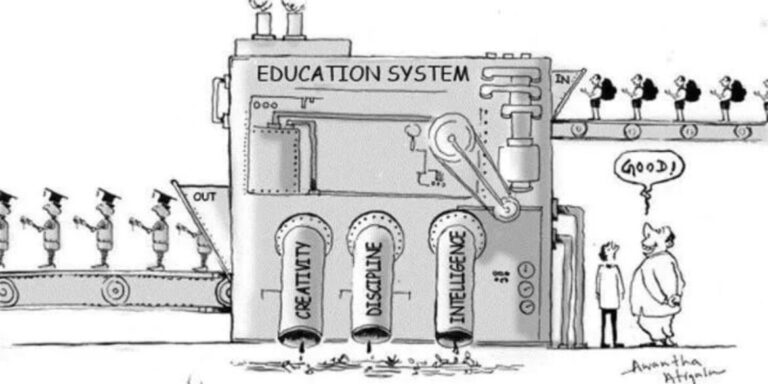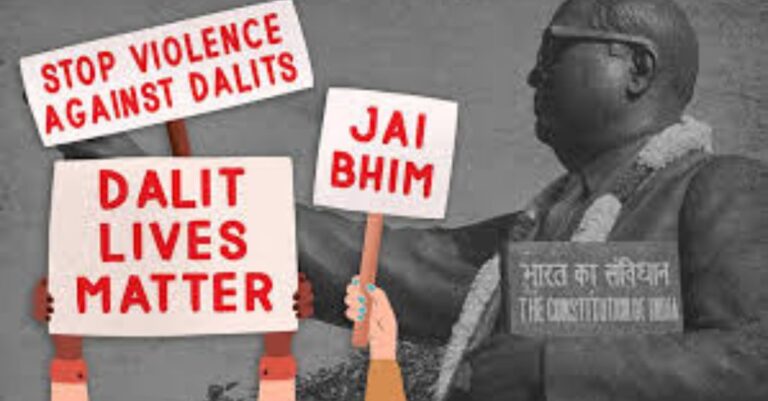By Nandini Naira Archer
As far-right riots look like they might be fizzling out across England and Northern Ireland, openDemocracy spoke with Black studies professor Kehinde Andrews about the UK’s longer history of racism and racist riots, Black anti-racist resistance, and what’s likely to happen next.
This interview has been edited for clarity and length.
openDemocracy: Let’s go back to basics – we’ve both seen all the videos and the news and what’s going on in England and Northern Ireland. Do you think the way in which it’s being analysed in the public conversation makes sense? We’ve seen these people being described as crazy thugs, or characterised as unheard and downtrodden. What frame would you use to analyse what’s going on?
Kehinde Andrews: It wasn’t surprising, I mean, I wrote a book called Psychosis of Whiteness; that’s what’s going on, so you can’t expect it to be rational, it’s a psychosis with a long history. But mostly, this idea that there are too many immigrants, too many Black and Brown people, we need to stop the boats, Britain is changing – that’s where the public conversation is at. That’s been the mainstream global discourse for at least 15 years. And that’s the problem.
We’ve heard this argument again and again then again by politicians like Nigel Farage, one of the country’s most famous politicians, and then the media. And actually, it’s not just that we heard the argument, it then became the immigration policy of the Tory party and, frankly, now it looks like the immigration policy of the Labour Party.
The last government took up National Front rhetoric in government, so we can’t be surprised when we see National Front activities happening on the streets. So, I think all this points to is that current events are just a reflection of this mainstream political discourse now being carried out on the streets. It was completely predictable.
Also, the idea that it is a surprise again is a bit strange given Britain’s been having these kinds of riots ever since we’ve been in the country. You’ve had these problems in 1919 in Cardiff, 1958, the 1960s, 1970s, 1980s, 2001 in Bradford and Oldham. This is a feature of British society, this happens a lot. It’s clearly an expression of wider societal racism.
I even put ‘racists’ in scare quotes because the worst way to understand this is that there are these ‘racists’. It’s much more complicated than that, these are ordinary British people. Everything about the way we’re thinking about this is wrong; that there are these racist thugs, these outliers.
Does anyone remember this story? If not why? Because that kid was black and he was killed by white man. Don’t tell me these riots aren’t about race. Britain has become more racist than ever and likes of Nigel Farage, the Tories and media are to blame. #UKRiots2024 #ukriots #UK pic.twitter.com/W55tHwpiNM
— Yay (@YonYon1990) August 6, 2024
In fact, the framework for the past 60 years has been: there are these racist individuals that sometimes get a bit violent but if you can change the law, then things will change. But that’s absolutely not the case, everything we know about racism is shows it’s systemic, not individual, and so until we look at it systematically, it won’t go away.
That leads to my next question: do you think tougher sentences for the kinds of violence we’ve seen would work? Surely sending some of these people to prison for a few months might radicalise them further? Do you think that more police on the street is actually helpful given their history of racism themselves?
The increase in police powers will only do more harm to Black and Brown people. I’m quite worried about this law and order approach, that’s just going to come back to bite us in the long run and we all know it. That kind of thing is very obvious to us, to Black communities, but isn’t something talked about in the mainstream of course.
Frankly, we can’t be an abolitionist on prisons when it comes to our people and then not an abolitionist on prisons for other people. Prisons don’t work anyway, they’re not fit for purpose, definitely not fit for purpose to rehabilitate a racist – that’s probably the worst place for them, where their ideologies can fester.
Prisons only make the problem worse, so it might be easy to argue for locking people up, but it’s much harder to do the hard work – to look beyond that, to think bigger.
If police and prisons aren’t the answer, what do you think the government response should be? What more could they be doing?
They’re not going to do it but there should be a big shift in politicians and media leaders in understanding how their political discourse and immigration policy has influenced this week’s events.
Then we need a much bigger, longer term, thought out educational piece about what Britain is. The premise of ‘keep Britain white’ is totally and utterly ridiculous; Britain was never ever white, from 1707 when Britain was founded as the nation it is today, there was the empire, and most of us in this country that are Black and Brown, are children of the British empire. My family were as British as anyone else in the Caribbean, and actually it’s on this subject where the work needs to be done.
This country has never been just these islands, it’s incredibly diverse. We were here because you were there. Even newer migrants are not just coming because Britain is great – again there is a history of money and power. So we need a discussion on why immigration is happening, and also where these people work, healthcare, care workers, propping up our whole society. There is no Britain without slavery, colonialism, immigration.
It’s not going to happen though, the government aren’t going to address it. We can dream, but for now, we’ll just keep locking people up and pretending we can get rid of racism that way.
Some of our readers have commented in the past week that we’ve been calling these riots across the UK, when in fact they are a uniquely English thing, a uniquely English nationalism, not taking place in Scotland or Wales. What would you say to that?
That’s interesting. But the thing is, you do see this in other places too, like the US, and ultimately it is a problem with whiteness and the way that’s developed in different places.
I suppose on the one hand, I don’t know any Black people who would call themselves ‘English’ – it’s something that’s very much associated with being white. Most of us call ourselves British, and it’s true, the vast majority of us do live in England. There are obviously some in other regions, but overwhelmingly, we all live in England.
What’s sparking this has been the fear of immigration, and given there are less immigrants in other regions, like Wales, that’s possibly why this hasn’t happened there?
But, honestly, I would push back a bit. I think the Scottish are just as racist as the English, same goes for the Northern Irish and Welsh. It’s a British problem. They were very much part of the British Empire – and slavery too. The idea that Scotland and Wales are more progressive on race doesn’t make sense. Talk to any Black person there, and they’re struggling with racism too. There’s a reason we don’t move there and we move to hubs where there are other Black people.
This is a difficult conversation that we all need to have together. There may be less violence on the streets right now in these places, there may be fewer Black and Brown people there, fewer immigrants – but as I say, it’s a systemic problem of racism and it’s not helpful to therefore think that it’s not a problem in other parts of Britain.
And in places where there is a high concentration of Black and Brown people, I’m thinking Birmingham and London, it seems like the far right were scared away. But then I’ve seen some say that this was a hoax – as in, they were never due to turn up in the first place, it was all part of some elaborate scheme to scare people.
I really would have been surprised if they had come through London or Birmingham. I got a WhatsApp message saying they were coming through Handsworth in Birmingham, where it’s 80% ethnic minority, and I just knew that was never going to happen.
Look, maybe they planned it and then they were cowards, but I just think they were never going to follow through. Realistically you can’t do an English Defence League march through someone else’s neighbourhood! They’d just get a kicking. Cowardice is a huge part of these British KKK types, pick people off when they feel strong, they’re not going to take on a whole community like that.
Let me add as well, and I think this is something that’s been hugely underplayed in mainstream discussions, that it’s actually because there was so much racial violence in the 1960s, 1970s, 1980s – when I was at school, we’d see National Front signs in people’s windows – precisely because of this racial violence and history, Black and Brown communities rallied together to defend themselves.
And so because there’s a history of us defending ourselves, that’s why these far-right racists aren’t going to be coming back to these predominantly Black and Brown areas, where they know they can’t win. It’s not just coincidental, it’s part of our resistance to racism in this country, and it’s a story that’s underplayed. It’s community self-defence which has stopped National Front, English Defence League and all these other incursions.
Lastly, what’s next? How can you see this ending? Or will it?
It looks like the riots are fizzling out, people will get arrested, put in prison, and then it’ll all happen again in a few years.
Also, I think we’re due an urban rebellion of Black and Brown people rising up in response. I would like to flag that those resistance riots are very different to what we’ve been seeing this week. Racist riots are mainstream resentment being put onto the streets, attacking people, communities, cultures – it’s completely different from communities exploding because of oppression from police, lack of opportunity, racism. When we are rebelling, it’s an anti-racist act, while this week we haven’t seen the opposite, racist attacks.
Sadly, they get treated the same, or in fact, the policing and crackdown on the anti-racist riots are often worse. In 2011, you got people sentenced for six months for stealing water bottles. These are two different things shouldn’t be put in the same category but we are due another rebellion. We’ll probably just have these cycles of racist riots and anti-racist riots because that’s the history, the fabric of society of Britain, because we’re refusing to confront the systemic problem of racism.
(Originally published in OpenDemocracy)




